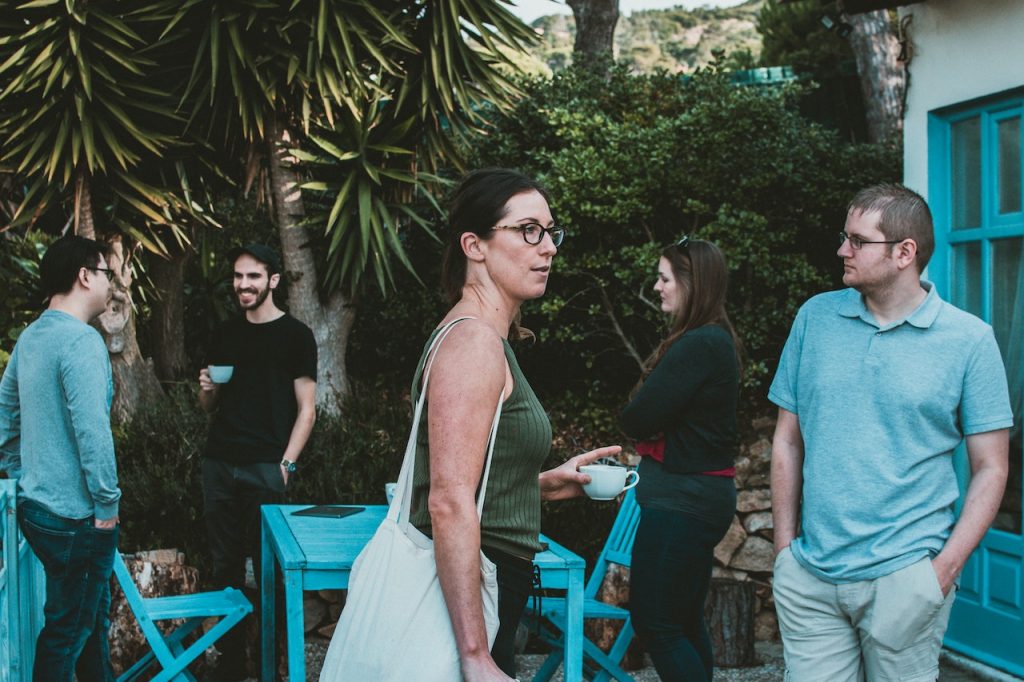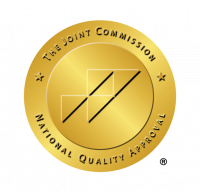If you’re an avid social media user, there’s a good chance you’ve heard of the sober curious movement. Or perhaps you’ve recently heard the term for the first time, and are wondering, what does “sober curious” mean? How is it different from regular, run-of-the-mill sobriety?
“Sober curiosity” is essentially a movement to rethink the role of alcohol in one’s life. In spite of the increased emphasis on wellness over the past decade or so, statistics show that alcohol is still a widely used substance. According to 2021 numbers, almost 30 million Americans aged 12 and up had an alcohol use disorder in the past year.1 Even for those who are not addicted, drinking can still lead to hangovers, extra weight gain, or overall malaise.

For these reasons, a significant number of people—including many “gray area drinkers”—have started reflecting on how to create a healthier relationship with alcohol. While some people feel they’d like to quit outright, others are weighing the pros and cons of cutting back vs abstaining, and would like to experiment with what drinking less feels like. In other words, they are feeling “sober curious.”
Sober curiosity is a fluid concept. Modified drinking habits may translate to abstinence, moderation, or somewhere in between. The goal of sober curiosity is to develop a relationship with alcohol that is right for you, rather than conforming to social norms which say you are either a “drinker” or in recovery.
Of course, there’s a lot more to this than meets the eye. What does this idea look like in practice? Below, we’ll get deeper into the question, “What is sober curious?” and take a closer look at the sober curious movement. We will also discuss the benefits of sobriety and how you can live a sober curious lifestyle.
What Does “Sober Curious” Mean?
So, what is “sober curious?” Basically, the term means questioning your relationship with drinking, including the way society views and participates in the consumption of alcohol. It is having a curiosity about life without alcohol, in terms of both the benefits and the challenges.
Someone who is sober curious doesn’t necessarily feel they have to stop drinking, but they are wondering what life would be like if they did stop. They are aware of the negative effects alcohol can have on their health and wellness, but they might still want to enjoy the occasional drink.
In addition to major health concerns, some people simply don’t like how they feel when they drink, or how it affects their relationships and jobs. They are tired of dealing with hangovers, lack of energy, or the shame of bad choices. As a result, they are considering alternative social options that don’t involve alcohol.

Schedule a private call with a Ria Health team member and we can help you get started.
History of the Term “Sober Curious”
The phrase “sober curious” was coined by British author Ruby Warrington. In an interview with Goop Magazine, she stated, “In 2010 I asked myself: What is the actual impact of drinking on my overall well-being, physically, mentally, emotionally, and spiritually?” Warrington explained that she drank to escape feelings of anxiety and being overwhelmed.
According to Warrington, drinking is something that many of us do without questioning it, even though we know it’s causing us pain. She attributes this partly to the lack of tools that offer us the same things that alcohol does—a feeling of social ease, or a way to relax at the end of a hard day. She notes that alcohol promises all of these things on the surface level.2
Over the past decade, the appeal of sober curiosity has surged. As Insider previously reported, the movement’s presence on social media has attracted many young people—especially young women.3 We see sober curious influencers posting on TikTok and Instagram, detailing how they’ve distanced themselves from drinking. Some even partner with brands selling alcohol alternatives.
What are the Benefits of Being Sober Curious?
Sober curiosity has a wide range of physical and mental health benefits. Reducing alcohol can improve your mood, sleep, and productivity, while decreasing your risk of depression and anxiety, and diseases like stroke, heart disease, and certain cancers.

In addition to the increased risk of serious medical conditions, there are the day-to-day downsides of alcohol to consider—such as problems at work or in relationships. Avoiding those unpleasant experiences can make a sober lifestyle sound very inviting.
Being sober curious gives someone an opportunity to evaluate what alcohol does and does not contribute to their life. For some, it is the first step to realizing the following benefits of life without alcohol:
- Better sleep quality throughout the night
- Increased energy
- More time for productive and enjoyable activities
- Mental clarity (being sharper at work and generally more present)
- Less absenteeism
- Increased self-control
- No hangovers
- Improved relationships
- Saving money
- Consuming fewer calories
- Less personal risk (unsafe driving, impaired judgment)
How to Live a Sober Curious Lifestyle
If this all sounds appealing, you may be wondering what a sober curious lifestyle might look like, and how to get started. Let’s take a look at some steps you can take to help you make the change.
Substitute alcohol with nonalcoholic alternatives
Initially, you may feel awkward about not partaking at the usual after-work watering hole. But you don’t have to worry about standing out like a sore thumb anymore!
With the rise of the sober curious movement, there are so many alternative drink options these days—nonalcoholic wines, beers, and more. You can also bring your own tasty “mocktail” to share at a social gathering. Others may appreciate it as well.
Focus on how the benefits of sobriety outweigh the losses
For example, consider how good you will feel the next day when you wake up well-rested and clear-headed. If it helps, try to recall a nasty hangover or two from the past, when you woke up with cotton-mouth and a jackhammer headache, dragging yourself into work for an early meeting.
On the flipside, staying sober or drinking moderately has tons of perks. It means having fun experiences and making memories with family and friends, feeling present, energetic, and engaged.
Prepare for some resistance
This is especially true if your social circle consists of big drinkers and partiers. Your friends may express disappointment or even apply pressure, saying “Oh come on, have just one” or “Don’t be a buzzkill.”
It is always helpful to have some excuses up your sleeve such as, “No thanks, I have an early meeting,” or, “I prefer to stay awake while I’m driving.” Or even just an honest “I am trying to get healthier.” When necessary, distance yourself from people and events that come with constant pressure.
Engage in alcohol-free social activities

Instead of spending hours in bars and clubs, consider some other options. The possibilities are endless: take in a movie, have a game night, join a gym, or connect with a meetup group based on your interests.
You may even want to try a creative pursuit such as art or music. These activities can open doors to a whole new group of friends and experiences.
Ask for support
Let family and close friends know that you are trying to cut back on your drinking and that you will appreciate their support (and even some reminders if necessary). Instead of making excuses each time you decline a social invitation, opt for the honest approach instead. You may be surprised at how much love and support comes your way.
Find new coping mechanisms
If you rely on alcohol to deal with stress or anxiety, replacement tools will be essential. For example, someone with social anxiety might be terrified to attend a social gathering without liquid courage. They may greatly benefit from meditation, yoga, or exercise to reduce stress and calm their nervous system.
Talking to a professional can also help a great deal. A qualified therapist can help you identify unproductive thought patterns that lead to anxiety and replace them with healthy ones.
Seek out podcasts and books on the subject
It is always encouraging to learn from those who have gone before you and have some wisdom to share. There is a plethora of resources online. Reading or hearing about someone else’s journey can also be very validating, healing, and informative.
When Sober Curiosity is Harder Than it Looks
Sober curiosity is a gradual move towards a new relationship with alcohol. Unlike those who want to quit drinking due to addiction, many who are sober curious may wish to avoid or limit alcohol for more general wellness reasons. This can mean giving up alcohol for a few weeks, cutting back in frequency or quantity, or quitting indefinitely.
Basically, the goal is to become more aware of your drinking habits, why you choose to drink, and become more mindful of your consumption.
This process is easier for some people than others. If you only drink to excess on occasion, you may be able to set new habits on your own without too much trouble. For those who have a substance use disorder or struggle with addiction, some assistance may be needed, and it’s important to remember that support is available.
If you’re curious about where your drinking falls on the spectrum, and if you could benefit from cutting back, consider taking our quick alcohol use assessment.




